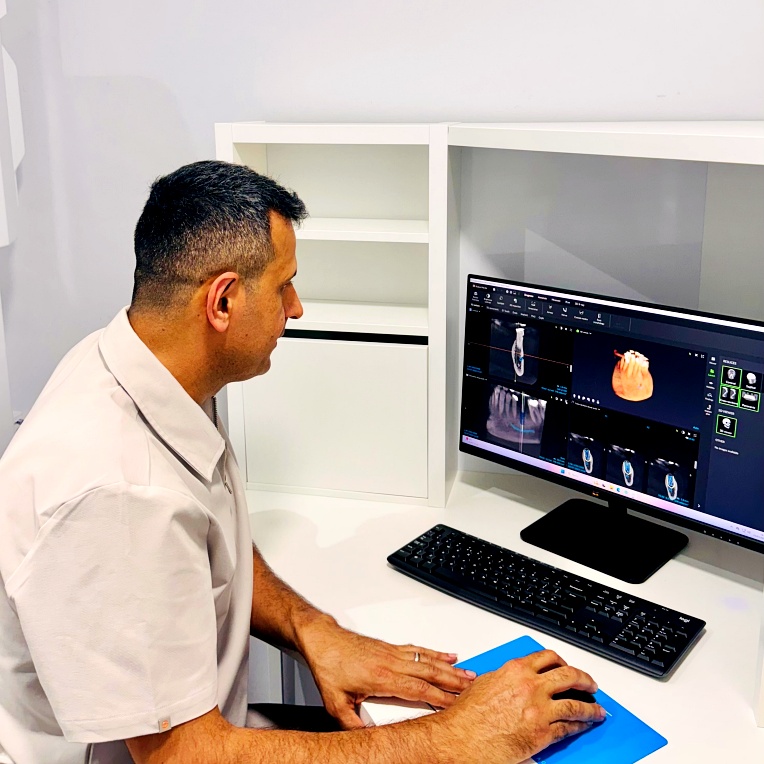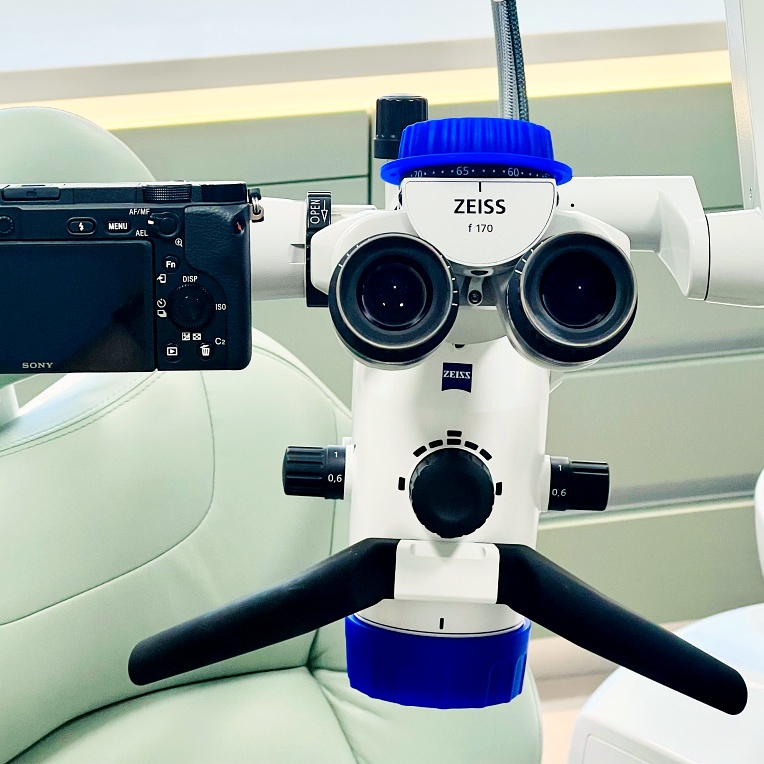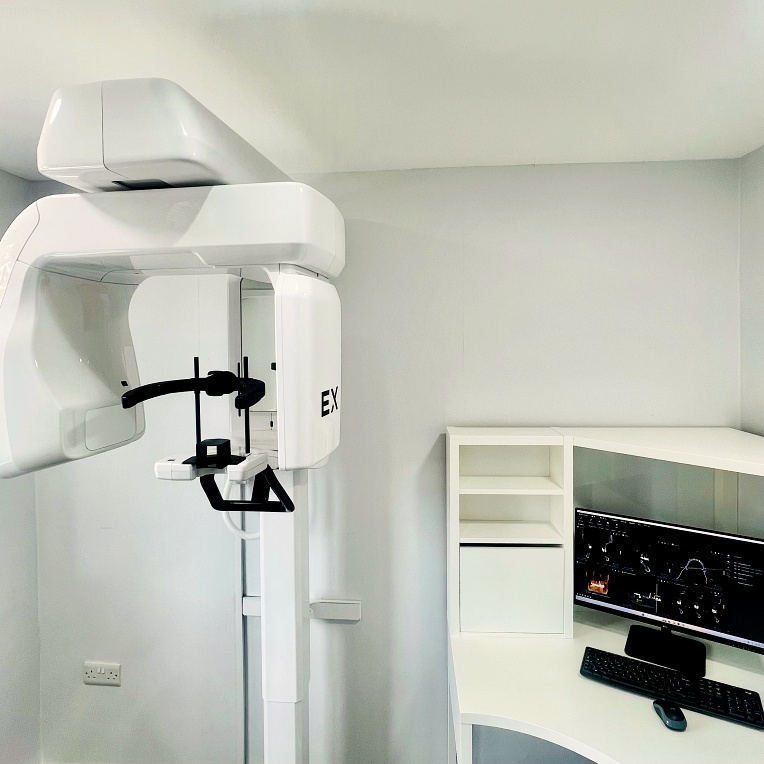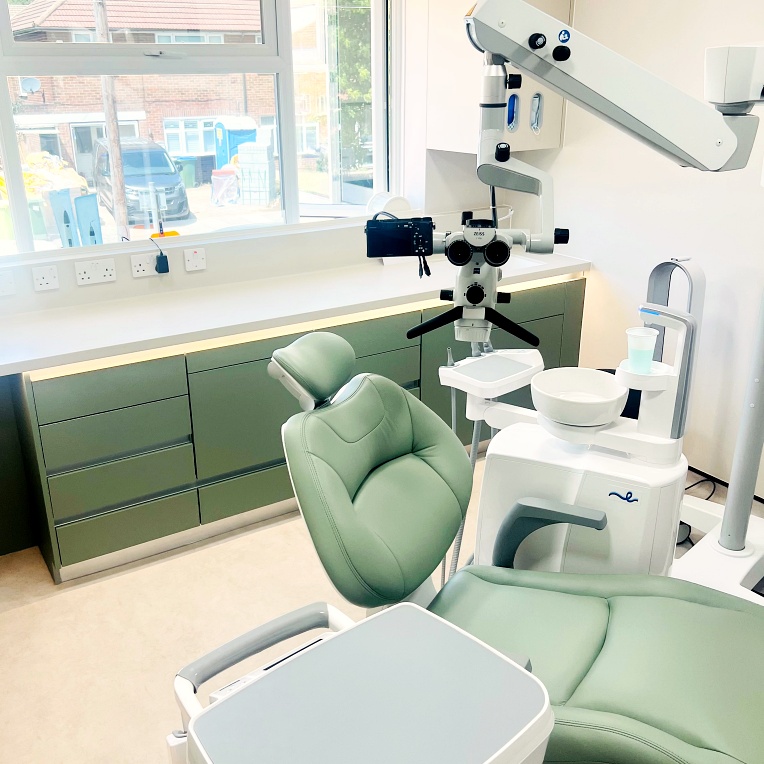Your clinical assessment is an opportunity to determine whether implants are a suitable solution for you and to ask any questions. We value all of your questions and will provide jargon-free, straightforward answers that help inform your decision to proceed with treatment.
Your clinical assessment typically lasts between 30 minutes and 60 minutes. We will ask you about your medical history and conduct an examination, which may include taking X-rays, intra-oral scans, and a CBCT scan to assess your oral health and jawbone volume.
At this stage, we can tell you if you are suitable for treatment. If you do not have sufficient bone to proceed right away, don’t worry. We can carry out a bone graft to increase the volume of healthy bone in the jaw, making you a suitable candidate in just a matter of months.
Complex implant cases can take several months to complete, and in some cases, we may need to conduct further investigations.
It’s normal to be apprehensive about implant surgery. We encourage you not to worry, though, as you are in the capable hands of compassionate dentists who have performed hundreds of successful implant cases.
Some preparations to observe before your surgery:
- Please eat and drink as normally before your surgery.
- Do not consume alcohol the night before or the day of your surgery.
- Take any routine medication.
- If you are undergoing sedation, please make sure you have somebody to drive you home after your surgery.
The placement of a single implant takes approximately 15 minutes. Still, you will be booked in for a longer appointment to ensure you are settled and that your reaction to the anaesthetic is effective.
Your implant surgery is carried out with great precision, and our surgical environments are designed to be relaxing (for example, we don’t use high-pitched drills that can exacerbate anxieties in nervous patients).
Most patients are pleasantly surprised by how short and painless their implant surgery is. Our experienced dentists use atraumatic techniques to minimise the risk of complications during and after surgery. You would be able to control any minor pain with over-the-counter painkillers.
In most cases, a small metal cap is adhered over the top of the implant to aid with the healing process and prevent further surgery. Your dentist may also place some dissolvable stitches. These can be removed after 1-2 weeks if you are experiencing any discomfort due to the stitches.
In cases where multiple implants are placed for full mouth rehabilitation, they are connected to a temporary fixed bridge immediately after surgery.
At the time of your impression, you will either have a digital impression taken (carried out by our state-of-the-art scanner) or a manual impression taken, depending on the case. This allows us to determine the dimensions that will serve as the basis for designing your new tooth or teeth.







